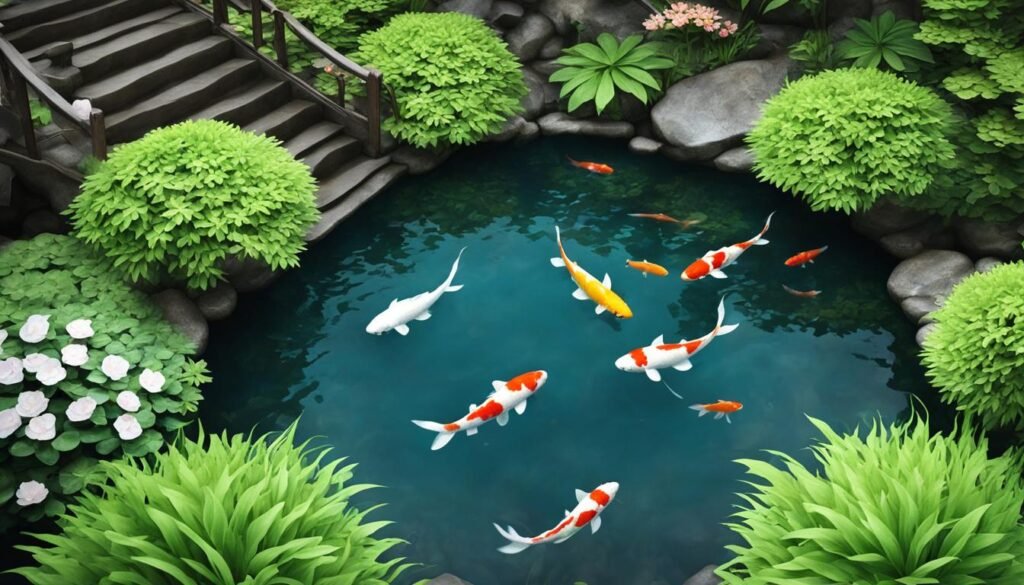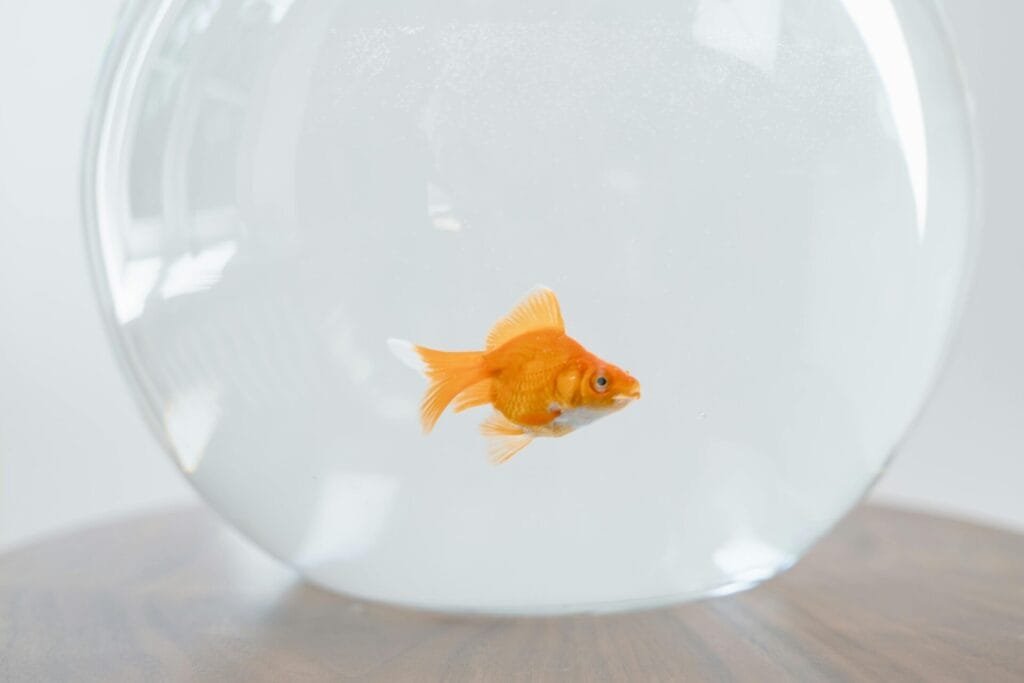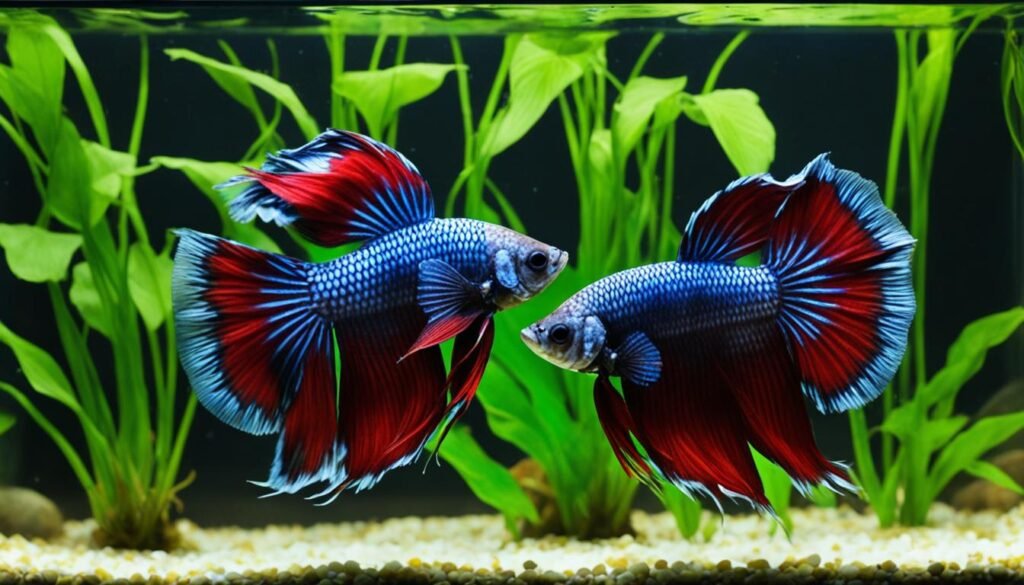Welcome to our article on koi fish lifespan! If you’re wondering how long koi fish live, you’ve come to the right place. Koi fish are known for their beauty and grace, but what about their longevity? In this article, we will reveal the secrets behind their impressive lifespan and explore the average lifespan of koi fish.
Have you ever wondered how many years you can enjoy the company of these fascinating creatures? Understanding the average lifespan of koi fish will give you valuable insights into their care and well-being. We’ll also explore the factors influencing their lifespan and learn how you can provide the best conditions for your koi fish to live a fulfilling life.
So, join us as we dive into the world of koi fish lifespan and uncover the secrets to their long-lasting beauty and vitality. But first, let’s take a moment to appreciate the elegance of these magnificent creatures with a stunning image of a koi fish:
Now, let’s delve into the fascinating world of koi fish longevity and discover how long these enchanting creatures can grace our lives.
The Remarkable Longevity of Koi Fish
Koi fish are known for their remarkable lifespan, often outliving many other fish species. Their longevity is one of the factors that make them beloved pets for many fish enthusiasts. In this section, we will explore the average lifespan of koi fish and delve into the fascinating stories of record-holding longevities, determining if these tales are based on truth or mere myths.
Understanding the Average Lifespan of Koi
On average, koi fish can live for about 25 to 35 years. However, with proper care and optimal conditions, some koi fish can live well beyond that time frame. Many factors contribute to the longevity of koi fish, including genetics, diet, water quality, and environmental conditions. By understanding these factors, fish owners can take the necessary steps to ensure their koi fish live a long and healthy life.
Record-Holding Longevity: Myth or Truth?
There have been extraordinary stories of koi fish with record-breaking longevities, reaching ages of 50 or even 100 years. However, it is essential to approach these tales with skepticism and critical thinking. While some documented cases of exceptionally long-lived koi fish do exist, it is crucial to separate fact from fiction. In the next section, we will investigate these fascinating stories and determine the veracity behind them.
Factors Affecting Koi Fish Lifespan
| Factors | Impact |
|---|---|
| Environmental conditions | Determines the overall health and well-being of koi fish |
| Water quality | Crucial for maintaining optimal fish health |
| Diet and nutrition | Provides essential nutrients for growth and longevity |
| Genetic factors | Influences the inherent traits and predispositions of koi fish |
| Stress levels | High levels of stress can reduce the lifespan of koi fish |
| Predators and diseases | Pose threats to the health and survival of koi fish |
| Size of pond or habitat | Adequate space is necessary for koi fish to thrive |
Understanding these factors is essential for providing the best possible care for your koi fish and maximizing their lifespan. By creating a healthy environment, optimizing water quality, monitoring their nutrition, and minimizing stressors, you can significantly increase the longevity of your cherished koi fish. Let’s take a closer look at each of these key determinants:
The overall health and lifespan of koi fish are greatly influenced by their living conditions. Factors such as temperature, water pH, oxygen levels, and pond filtration systems play a crucial role in ensuring their well-being. Maintaining a stable and suitable environment is essential for koi fish longevity.
Water Quality:
The water quality of the pond or habitat directly impacts the health of koi fish. Proper filtration, regular water testing, and adequate oxygenation are important for maintaining optimal water conditions. Monitoring and maintaining water quality parameters are key to preventing diseases and promoting longevity.
Diet and Nutrition:
A well-balanced and nutritious diet is vital for the growth and longevity of koi fish. Providing quality koi pellets or a mix of high-quality fish food, supplemented with occasional treats like fruits and vegetables, ensures their nutritional needs are met. Proper nutrition supports a strong immune system, promotes growth, and enhances lifespan.
Genetic Factors:
Koi fish longevity can be influenced by their genetic makeup. Certain genetic factors can predispose them to certain health conditions or impact their overall vitality. Understanding the genetic background of your koi fish can help you anticipate potential health issues and provide adequate care.
Stress Levels:
High levels of stress can have a negative impact on the lifespan of koi fish. Factors such as overcrowding, sudden environmental changes, water parameter fluctuations, and predation threats can cause stress. Minimizing stressors and providing a calm and secure environment is crucial for the well-being and longevity of koi fish.
Predators and Diseases:
Koi fish are vulnerable to predators and diseases that can significantly reduce their lifespan. Protecting your koi fish from predators like raccoons, birds, or cats and implementing proper disease prevention measures, such as quarantine protocols and regular health checks, can help ensure their longevity.
Size of Pond or Habitat:
The size and layout of the pond or habitat can impact the growth and lifespan of koi fish. Adequate space allows for proper swimming, exercise, and social interaction, promoting their overall well-being. A well-designed and spacious pond is essential for koi fish to thrive and reach their full potential.
By taking into account these factors and providing optimal care, you can significantly enhance the lifespan of your beloved koi fish.
How Long Do Koi Fish Live – Exploring Genetic Influence
The genetic makeup of koi fish plays a significant role in determining their lifespan. Understanding the genetic factors that influence their longevity can provide valuable insights into their care and overall well-being. In this section, we will delve into the differences between solid-colored koi fish and patterned breeds, and how their genetics may impact their lifespan.
Solid-Colored Koi Vs. Patterned Breeds
One of the key genetic factors to consider is the coloration of koi fish. Solid-colored koi fish exhibit a consistent color throughout their bodies, while patterned koi breeds showcase intricate and vibrant patterns. The genetic variations responsible for these differences not only contribute to their visual appeal but may also have implications for their lifespan.
Research suggests that solid-colored koi fish tend to have a longer lifespan compared to patterned breeds. The genetic makeup responsible for solid coloration may confer certain advantages in terms of resilience and overall health. These solid-colored koi fish are often prized for their elegant simplicity and longevity.
Historical Misconceptions: The Tale of Hanako Revisited
No discussion about the genetic influence on koi fish lifespan would be complete without revisiting the story of Hanako, a legendary koi fish known for her extraordinary age. Hanako was believed to have lived for over two centuries, captivating the imaginations of koi enthusiasts worldwide.
However, recent studies have cast doubts on the accuracy of Hanako’s reported age. While Hanako did live a remarkably long life, the initial estimates may have been inflated due to misinterpretation of her growth rings. Nevertheless, Hanako’s story continues to inspire awe and fascination, showcasing the incredible potential for longevity in these remarkable creatures.
By understanding the genetic influences on koi fish lifespan, particularly in relation to solid-colored koi fish, we can gain insights into their care and provide the optimal conditions for their well-being. Let’s now turn our attention to Section 5, where we will explore essential tips for maximizing the lifespan of your koi fish.
Maximizing Koi Fish Lifespan: Essentials of Koi Care
To ensure your koi fish live a long and healthy life, proper care and maintenance are crucial. By following these essential tips and guidelines, you can maximize the lifespan of your cherished koi fish. From nutrition and water quality to pond setup and disease prevention, creating an optimal environment is key to helping your koi fish thrive.
Nutrition: A Balanced Diet for Longevity
Koi fish require a balanced and nutritious diet to maintain their health and longevity. Provide them with high-quality koi fish food that contains a mix of proteins, carbohydrates, fats, vitamins, and minerals. Feeding them multiple small meals throughout the day instead of one large meal will prevent overeating and promote digestion.
Water Quality: A Prerequisite for Healthy Living
The quality of the water in your pond significantly impacts the well-being of your koi fish. Regularly test the water parameters and ensure that levels of ammonia, nitrite, nitrate, pH, and dissolved oxygen are within the recommended range. Use a high-quality filtration system to keep the water clean and clear, removing any debris or waste. Adequate aeration and circulation are also essential for maintaining optimal water conditions.
Pond Setup: Creating a Safe and Comfortable Environment
When setting up your koi pond, consider factors that provide a safe and comfortable environment for your fish. Include a properly sized and adequately deep pond that allows them to swim and grow freely. Create ample shade with aquatic plants or shade structures to protect them from excessive sunlight. Ensure the pond has good drainage and consider adding a UV sterilizer to control bacteria and parasites.
Disease Prevention: Keeping your Koi Healthy
Preventing diseases is crucial for ensuring your koi fish live a long and healthy life. Quarantine new fish before introducing them to your existing koi population to avoid introducing any potential diseases. Regularly inspect your fish for signs of illness, such as fin rot, parasites, or abnormal behaviors. Maintain good water quality and provide your koi fish with proper nutrition to boost their immune system and enhance their ability to fight off diseases.
| Essentials of Koi Care | Maximizing Koi Fish Lifespan |
|---|---|
| Nutrition | Provide a balanced and nutritious diet |
| Water Quality | Maintain optimal water conditions through regular testing and filtration |
| Pond Setup | Create a safe and comfortable environment with a proper pond size and shade |
| Disease Prevention | Regularly inspect fish, quarantine new fish, and maintain good water quality |
Conclusion
In conclusion, koi fish have the potential to live for an impressive number of years. By understanding the average lifespan, genetic influences, and factors that affect their longevity, you can provide the best care for your koi fish and enjoy their companionship for many years to come.
It is crucial to follow our expert tips and guidelines to ensure the well-being of your koi fish. By maintaining a balanced diet, monitoring water quality, and creating an optimal pond environment, you can maximize their lifespan and enhance their overall health.
Remember that koi fish are more than just pets; they are living beings that deserve our care and attention. With the right care and conditions, your koi fish can live a long and fulfilling life, bringing beauty and joy to your pond for years to come. So, take the necessary steps to provide the best care for your koi fish and cherish their presence in your aquatic oasis.


